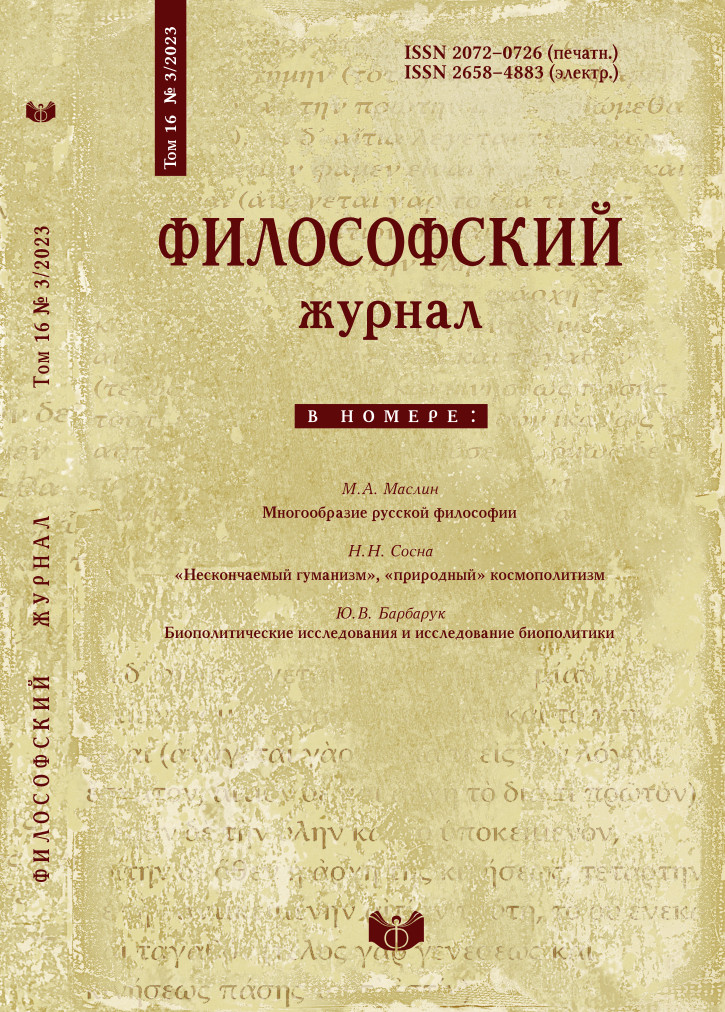Heidegger, Nothingness and the overcoming of the fear of death
DOI:
https://doi.org/10.21146/2072-0726-2023-16-3-85-102Keywords:
God, being, beings, nothingness, fear, anxiety, death, M. HeideggerAbstract
The article examines the “philosophy of anxiety” of early Heidegger. The influence of Nietzsche on the young philosopher is noted, as well as the traumatic experience of World War I, which very strongly influenced the worldview of the author of Being and Time, making him reconsider, among other things, his attitude to the “system of Catholicism”. The article examines Heidegger’s description of the situation where one is seized by anxiety, where one would not expect it at all, where one normally feels at home. Normally, being fallen, that is, being in the world and bustling with daily chores, one feels secure in the midst of beings, at home. However, something happens to him that robs him of his tranquility. This occurs because the existent (Dasein) is disturbed im Grunde seines Seins, at the core of his being; one is aware of his own mortality and the finitude of being, which constitutes a threat, opening the possibility of anxiety (immortal beings, such as angels, treat being differently, for them the analysis of Dasein is irrelevant). Fear belongs to the ontic, it relates to the fallen state. When one ascends to the Nothingness, which is revealed as Being, that is, when one rises above being in some respect, one surpasses fear as well. In the course of the article, the question of translating some of Heidegger’s concepts into Russian is discussed, which is an urgent task for the Heideggerian studies.






